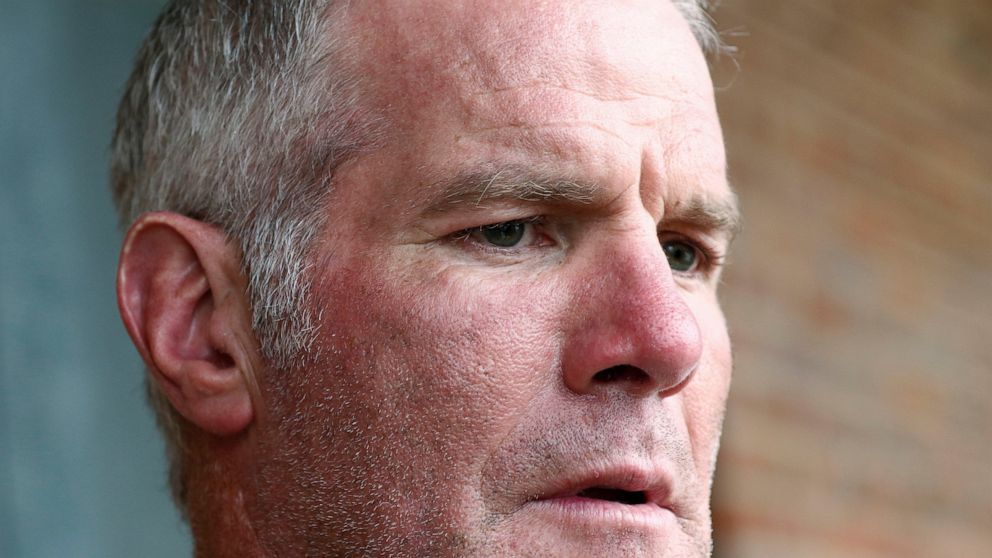[ad_1]
Former NFL quarterback Brett Favre is repaying more than $1 million in welfare money that he received for speeches where he did not show up
4 min read
JACKSON, Miss. —
Former NFL quarterback Brett Favre is repaying $1.1 million in welfare money that he received for multiple speeches where he did not show up, the Mississippi state auditor said Wednesday.
Auditor Shad White said his office received $500,000 from Favre on Wednesday, plus a commitment that Favre will repay the other $600,000 in installments over the next few months.
Favre’s effort to repay the money came two days after White released an audit of spending by the Mississippi Department of Human Services that showed Favre had been paid by Mississippi Community Education Center, a nonprofit group whose former leader has been indicted in a welfare embezzlement scheme.
Mississippi is one of the poorest states in the U.S., and the community education center had contracts with Human Services to spend money through the Temporary Assistance for Needy Families program, also known as TANF.
“I want to applaud Mr. Favre for his good faith effort to make this right and make the taxpayers and TANF families whole,” White said in a statement Wednesday. “To date, we have seen no records indicating Mr. Favre knew that TANF was the program that served as the source of the money he was paid.”
The audit released Monday said the center paid Favre Enterprises $500,000 in December 2017 and $600,000 in June 2018, and he was supposed to make speeches for at least three events. The auditor’s report said that “upon a cursory review of those dates, auditors were able to determine that the individual contracted did not speak nor was he present for those events.”
Favre, who lives in Mississippi, faces no criminal charges. The audit report lists the payments to him as “questioned” costs, which White said means “auditors either saw clear misspending or could not verify the money had been lawfully spent.”
White said the money being repaid by Favre will be sent to the Department of Human Services.
Favre has not returned multiple text messages sent to him by The Associated Press since Monday. His manager, Bus Cook, told AP on Wednesday: “We’ve got nothing to say.”
In an audit, White said his employees identified $94 million in questionable spending by the agency, including payments for sports activities with no clear connection to helping needy people in one of the poorest states of the U.S.
The audit was released months after a former Human Services director and five other people were indicted on state charges of embezzling about $4 million. They have pleaded not guilty and are awaiting trial in what White has called one of Mississippi’s largest public corruption cases in decades.
“If there was a way to misspend money, it seems DHS leadership or their grantees thought of it and tried it,” White said.
John Davis was director of the Department of Human Services from January 2016 until July 2019, appointed by then-Gov. Phil Bryant — a Republican who also appointed White to office when a previous auditor stepped down. Davis was one of the people indicted; another was Nancy New, who was director of the Mississippi Community Education Center. Davis, New and the others indicted have pleaded not guilty and are awaiting trial.
AP left a phone message Wednesday at Mississippi Community Education Center’s Jackson office with questions about the payments to Favre. There was no immediate response.
The auditor’s report said Human Services leaders, particularly Davis, “participated in a widespread and pervasive conspiracy to circumvent internal controls, state law, and federal regulations” to direct grant money to certain people and groups. Davis instructed two groups that received grants, the Mississippi Community Education Center and Family Resource Center of North Mississippi, to spend money with certain other people or groups, the auditor’s report said.
White said the those two nonprofit groups received more than $98 million in Department of Human Services grants during the three years that ended June 30. Most of the money came from Temporary Assistance for Needy Families.
The audit will be sent to the U.S. Department of Health and Human Services, and federal officials will decide whether to sanction the state for misspending, White said.
————
Associated Press sports writer Arnie Stapleton contributed to this report from Aurora, Colorado.
[ad_2]
Source link

